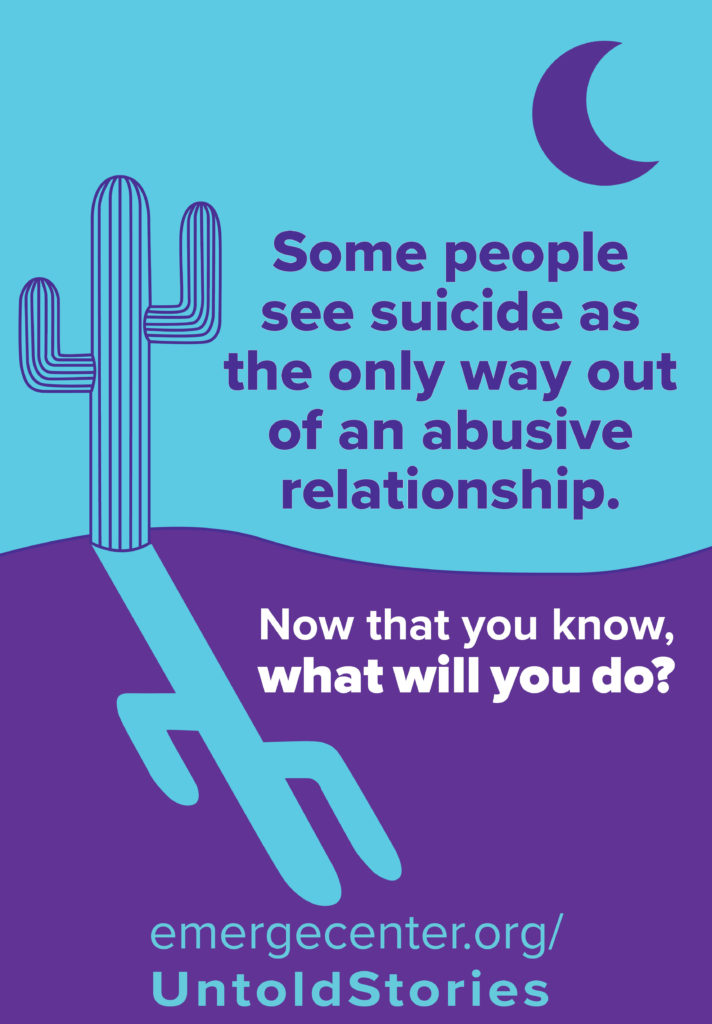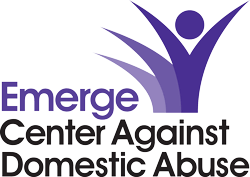
October 2019 – Supporting victims who die by suicide
Mitsu died by suicide the day after she disclosed the abuse she was experiencing to her friend Mark. We wish Mitsu’s story were rare, but unfortunately, studies show that women who have experienced domestic abuse are seven times more likely to experience suicidal ideation when compared to individuals who have not experienced domestic abuse. In a global context, the World Health Organization found in 2014 that someone dies by suicide every 40 seconds, and suicide is the second leading cause of death for 15 – 29 year olds.
When factoring in how different identities related to ability, gender, race and sexual orientation can overlap, the risk factors for victims of domestic abuse thinking about suicide increases. In other words, when someone lives with the experience of regularly navigating obstacles because of their identities, and they experience domestic abuse simultaneously, their mental health can be seriously affected.
For example, due to historical trauma and a long history of oppression, women who are Native American or Alaska Natives are at a higher risk of suicide. Similarly, youth who identify in the LGBTQ communities and have experienced discrimination, and women who live with a disability or a debilitating illness who are simultaneously experiencing domestic abuse are at a higher risk.
In 2014, a Federal initiative through SAMHSA (Substance Abuse and Mental Health Services Administration) began to look at the interactions between domestic abuse and suicide and urged experts in both fields to understand the links in order to better support individuals experiencing domestic abuse to understand that suicide isn’t the only way out of their relationship.
What Can You Do?
Mark describes how he, as Mitsu’s friend, supported Mitsu after she opened up about her abusive relationship. He also describes the emotions and struggles he experienced when she died by suicide. So, how can you help if someone you love is experiencing domestic abuse and thinking about suicide as the way out?
First, understand the warning signs of domestic abuse. Second, learn the warning signs of suicide. According to the National Suicide Prevention Hotline, the following list encompasses things that you can watch out for, if you’re concerned about a loved one:
- Talking about wanting to die or to kill themselves
- Looking for a way to kill themselves, like searching online or buying a gun
- Talking about feeling hopeless or having no reason to live
- Talking about feeling trapped or in unbearable pain
- Talking about being a burden to others
- Increasing the use of alcohol or drugs
- Acting anxious or agitated; behaving recklessly
- Sleeping too little or too much
- Withdrawing or isolating themselves
- Showing rage or talking about seeking revenge
- Having extreme mood swings
It’s also important to know that sometimes, people will confide one experience, but not the other. They may express feelings of hopelessness, but not connect it to the abuse they are experiencing in their intimate relationship. Or, they may express concern about their intimate relationship, but not talk about the suicidal ideation they may experience.
Third, offer resources and support.
- For domestic abuse support, your loved one can call Emerge’s 24/7 multilingual hotline anytime at 520-795-4266 or 1-888-428-0101.
- For suicide prevention, Pima County has a community-wide crisis line: (520) 622-6000 or 1 (866) 495-6735.
- There’s also the National Suicide Hotline (which includes a chat feature, if that’s more accessible): 1-800-273-8255
What about Secondary Survivors?
Secondary survivors, like Mark, should also get support. A secondary survivor is someone who is close to the domestic abuse survivor and experiences responses to the trauma their loved one is going through, like depression, sleeplessness, and anxiety. It’s a normal part of the grieving process to experience complex emotions after a loved one – who experienced intimate partner abuse – dies by suicide, including anger, sadness, and blame.
Loved ones often struggle to figure out the best way to support the domestic abuse survivor when they are living through the abuse, and may feel like they aren’t doing “enough.” These feelings may continue if their loved one dies by suicide (or dies as a result of the abuse). The loved one may feel helpless and guilty after their death.
As Mark mention, seeing a behavioral health therapist to process through the grief and pain of losing Mitsu has been helpful. Support can look different from one person to the next in terms of processing secondary trauma; seeing a therapist, journaling and finding a support group are all good options in the road to recovery. Some loved ones especially struggle during holidays, anniversaries and birthdays, and may need additional support during those times.
The most valuable help we can provide to those who are living in an abusive relationship and possibly experiencing isolation or thoughts of suicide is our willingness to listen and be open to hearing their stories, to show them that they are not alone and there is a way out. That even though they might be experiencing difficult times, their lives are valuable and therefore worth seeking support.

